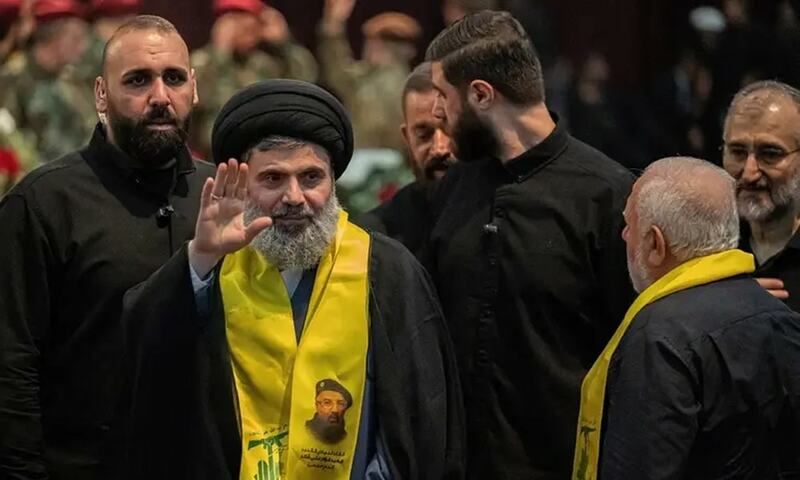A senior Hezbollah official accused Israel on Sunday of obstructing search and rescue efforts for Hashem Safieddine, a top Hezbollah leader believed to have been in Beirut’s southern suburbs during Israeli airstrikes last Thursday.

Mahmoud Qmati, speaking to Iraqi state television, said Israel should “let rescue teams do their work.” Safieddine, widely considered a potential successor to the recently killed Hezbollah leader Sayyed Hassan Nasrallah, remains unaccounted for following the strikes on the Dahiye area.
“The situation remains tense and uncertain,” said Middle East analyst Dr. Sarah Levin. “Safieddine’s fate could significantly impact Hezbollah’s leadership structure and future operations.”
Qmati also addressed rumors about Iranian Quds Force leader Esmail Qaani, stating he had no information on reports that Qaani has not been heard from since the Beirut strikes.

Highlighting Hezbollah’s current leadership structure, Qmati explained, “What’s important is that joint command is in place. The method of choosing a replacement for the secretary-general takes time and requires appropriate circumstances, and for that reason we suffice today with temporary joint command.”
The official confirmed that Nasrallah’s body remains in Lebanon, with plans to bury him in Beirut’s southern suburbs when conditions allow.
These developments come amid nearly a year of escalating conflict between Israel and Hezbollah, which intensified following Hamas’ October 7 attack on Israel. Recent weeks have seen a rapid expansion of hostilities, with Israel launching a widespread air campaign across Lebanon.
“The conflict has taken a devastating toll,” said UN humanitarian coordinator Lynn Hastings. “An estimated 1.2 million people have been displaced in Lebanon, according to government figures, creating a dire humanitarian situation.”
REUTERS



